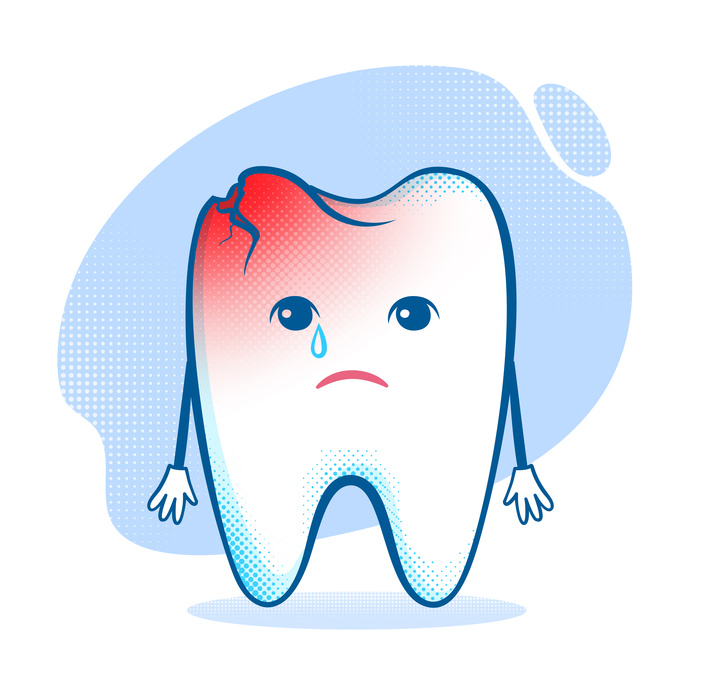Oral Parafunctional Habits Have Serious Consequences
In an earlier blog, we showed you how to identify and control behaviors that professional dentists call oral parafunctional habits. In everyday terms, these are unconscious actions that include nail-biting, thumb-sucking, and thrusting the tongue against the teeth. The most common habits by far are clenching and bruxism — that's the dentistry term for grinding of the teeth, which is often accompanied by clenching. While many people display these habits (frequently during sleep), that doesn't mean you should brush them off as "no big deal." Human dentition is made of very tough stuff, but it's not impervious, especially up against the constant pressure and friction of a parafunctional habit. If unchecked, clenching and bruxism can lead to serious damage to your teeth that requires extensive treatment by a dentist. Still skeptical? This is what clenching and bruxism can lead to:
- Sensitivity: As the outer layers of enamel wear away, you'll experience an increase in tooth sensitivity. This can manifest as a general sensitivity or to specific temperatures.
- Fractures: If it's not caught early, bruxism leads to stress fractures, most commonly in the molars. These fissions in the tooth appear light brown in color, and many people mistake them for the onset of cavities. Without treatment, parts of the tooth will begin to give way as the fractures deepen under pressure.
- Nerve Inflammation: Once the enamel gives way to fractures, wear on the teeth penetrates to the inner regions of the tooth, causing the sensitive nerve tissues to become inflamed. This inflammation can become irreversible.
- Internal Root Resorption: A condition of chronic inflammation in the tooth's nerve and blood vessels, internal resorption begins at the innermost surface of the root chamber. Tooth pulp and the dentin surrounding it begin to disappear; if this loss reaches the outer surface of the root, internal resorption cannot be treated and the tooth may be lost.
- External Root Resorption: Extensive pressure on the root surface can cause external root resorption, which is more aggressive and difficult to treat. External resorption starts outside of the tooth, where the root connects to the jawbone in the tooth's socket. In this condition, your body's cells attack the root, which can devastate its surface and result in the loss of the complete root structure.
- Gum Recession and Bone Loss: When you put your teeth under the pressure of a parafunctional habit, something has to give — tooth, gum, or even bone. The risk of bone loss is especially high in the presence of existing inflammation or infection of the gums. Without the full support from healthy bone, teeth can become loose or even shift their position.
- Tooth Death: Whether through fractures, inflammation, or resorption, severe bruxism and clenching can cut off the blood supply to the tooth, which kills the vital pulp at its center.
As you can see, parafunctional habits are highly dangerous. The good news is, under the care of a comprehensive general dentist, even their serious effects are treatable. In cases of nerve inflammation, resorption, and even tooth death, procedures such as root canals, crowning, gum surgery, and tooth restoration can bring a smile that has been damaged by parafunctional habits back to life.
We offer our patients the most gentle and comfortable care in Englewood, Florida. If you or someone close to you is suffering from the effects of a parafunctional habit, we are here to help. Contact us today.



